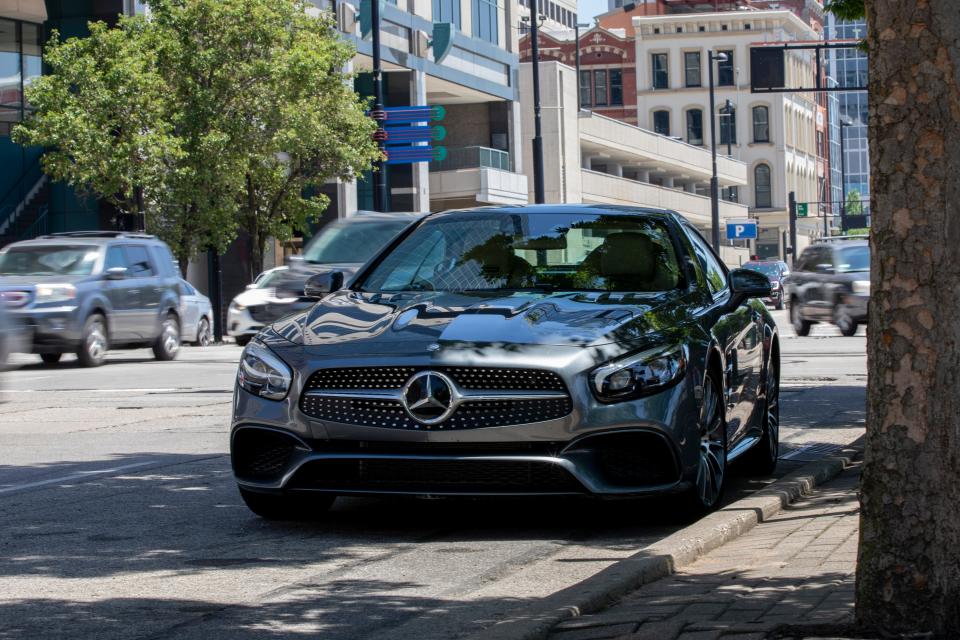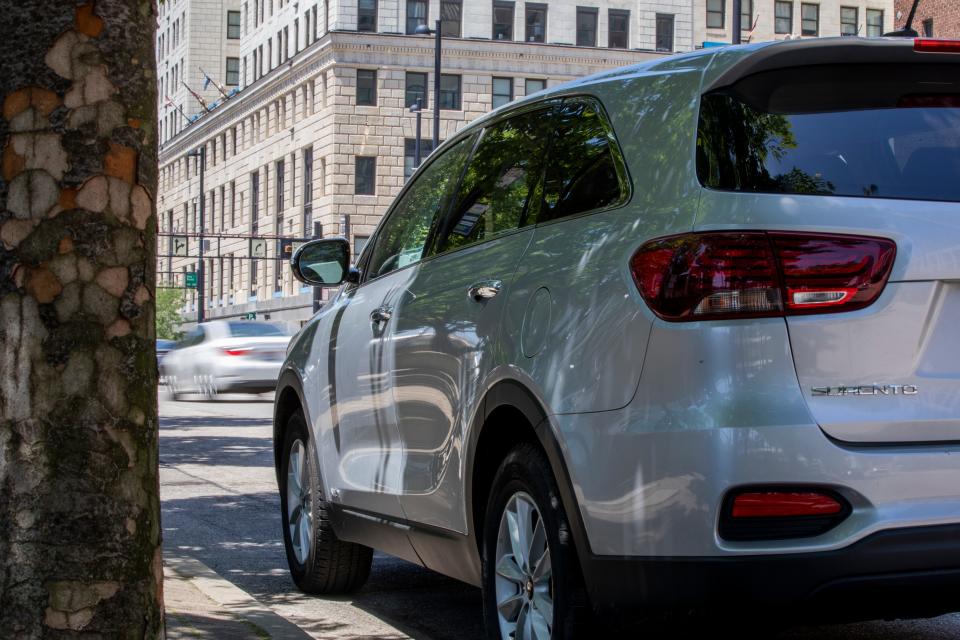Avoid a breakdown: How to take care of your car in extreme heat
Hot weather is expected in Greater Cincinnati this week, and that can have an impact on your car. According to AAA, there are more vehicle breakdowns and a higher demand for emergency roadside assistance during heat waves.
Since temperatures aren't projected to cool down anytime soon, The Enquirer spoke with Enrique Sanders, the Cincinnati AAA district director for car care, about how you can prepare your vehicle for extreme heat.
Cincinnati weather: Hot temperatures expected Tuesday and Wednesday
Beat the heat: Ohio state parks waive pool fees amidst heat advisory

Check your tire air pressure
Besides keeping tires inflated, maintaining proper air pressure helps to regulate tire temperature.
"Heat is like a tire's worst enemy," Sanders says. "When a tire is low on air pressure and you're driving, especially in the heat, what happens is it's generating heat and causing that tire to expand, which will eventually sometimes lead to a blowout."
Check your tires' air pressure in hot weather conditions and refer to the manufacturer placard, found on the driver's side doorjamb, to see what the air pressure is supposed to be.
Maintain proper fluid levels
Sanders recommends checking your vehicle's coolant levels, windshield wiper fluid and keeping oil changes up-to-date in hot weather. If your car's air conditioning seems to be faulty or you notice fluid leaking under your car, get it checked out by an automotive repair shop.
You can check your car's coolant levels at home. Simply pop open your vehicle's hood and make sure the fluid in the coolant reservoir meets the "high" marker.
Check the cabin air filter
The cabin air filter helps to clean the air you're breathing inside your car. Pollen and other debris can pick up in warmer months, so making sure the filter is clean and up-to-date is important.
Another air tip Sanders recommends in extreme heat is to avoid using your car's air recirculation feature, as this just recirculates hot air inside the car. Instead, use your air conditioner's fresh air setting.
Keep your car clean
When debris, tar or anything else lands on your car's exterior, "the heat bakes that stuff on," Sanders says. To avoid discoloration or cosmetic damage, he recommends quickly cleaning any stains or debris off the vehicle.
Keeping the inside of your car clean is important in the heat, too. "If you've got some old chicken nuggets under your seat, when you go back to your car and it's 110 degrees in there, that's when you'll find them," Sanders says.
Photos: Record high heat in Greater Cincinnati
Cars: Concours d'Elegance returns to Ault Park. Here's what to know

Park in the shade
Try to find at least a semi-shaded area to park your car to keep its temperature down. To keep your steering wheel cooler to the touch, Sanders suggests rotating the wheel 180 degrees, so that the top part is on the bottom when you park your car. This way, the top rim of the wheel will be in less direct sunlight and won't be as hot when you return to the car. Just be sure to correct the steering wheel before driving off.
You can also place a clean Styrofoam or cardboard cup over your gear shift while you're gone so it won't get as hot. Other ways to keep your car cool are tinting your windows or using a sun shield in the windshield.
Keep emergency supplies in the car
Sanders recommends always having flashlights, road flares, nonperishable snacks, bottles of water and a blanket in your car in case of a breakdown.
This article originally appeared on Cincinnati Enquirer: More car breakdowns occur in hot weather. Here's how to avoid them

